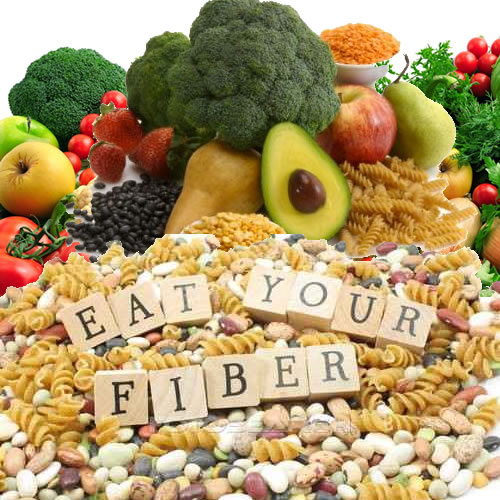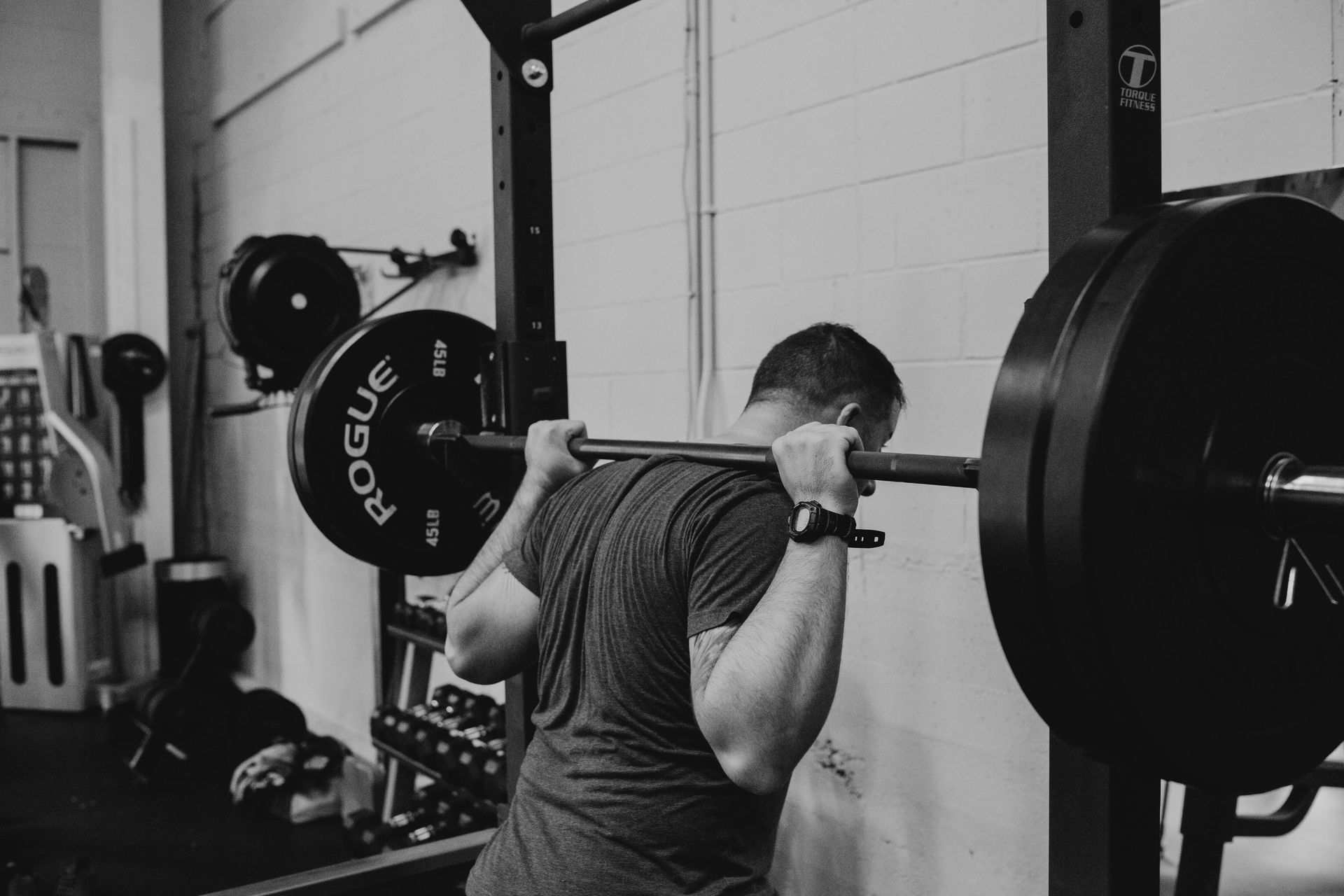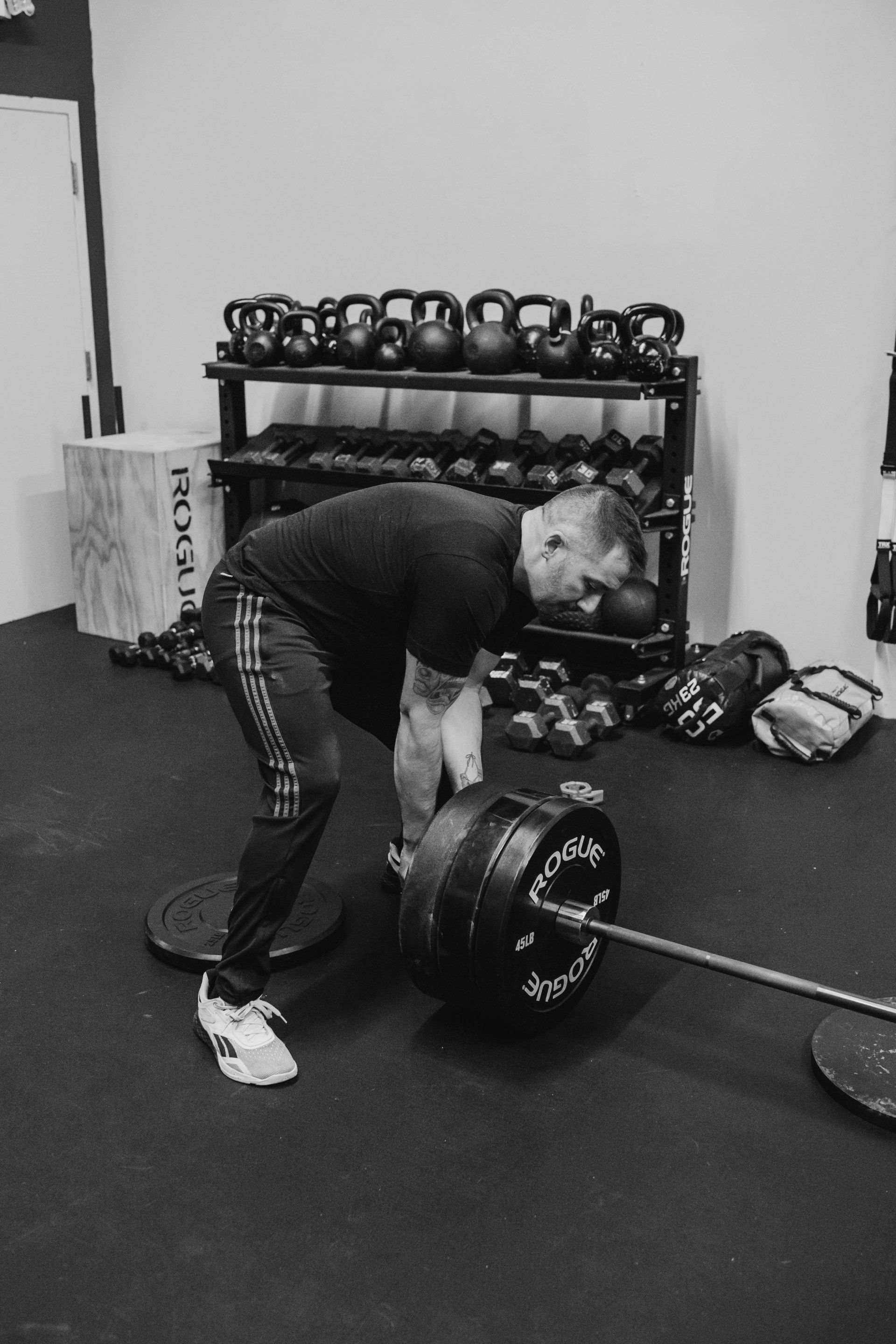Fiber is a really important component of our dietary intake. From a fitness perspective it’s important to help keep you full in between meals. Other health benefits include keeping you regular, lowering cholesterol, keeping steady blood sugar, and it can even make you live longer!
How much fiber do you need?
 Women should get 25 grams and men should aim for 38. Typically, we’re not getting that much. Start paying attention to your nutrition labels and count your grams of fiber. Add more fiber to your diet slowly to avoid cramps and bloating. Gradually increase over a 2- or 3-week period and drink plenty of water.
Women should get 25 grams and men should aim for 38. Typically, we’re not getting that much. Start paying attention to your nutrition labels and count your grams of fiber. Add more fiber to your diet slowly to avoid cramps and bloating. Gradually increase over a 2- or 3-week period and drink plenty of water.
To reach her daily target, a woman could eat:
- A cup of oatmeal (4 grams) and a pear (4 grams) for breakfast
- A large apple for a snack (4.5 grams)
- A salad made with 3 cups of romaine lettuce (3 grams), 1/4 cup of chopped celery (2 grams), and a small tomato (1.4 grams) with lunch
- Half a cup of cooked spinach (7 grams) as a side dish with dinner
A man could reach that target by adding three dried figs (10.5 grams) and a medium-sized baked yam (6.8 grams) to his dinner.
Fiber Types
There are two types of fiber: soluble and insoluble. Both come from plants and are forms of carbohydrates. But unlike other carbs, fiber can’t be broken down and absorbed by your digestive system. Instead, as it moves through your body it slows digestion and makes your stools softer and easier to pass.
Soluble fiber absorbs water, turning into a gel-like mush (think of what happens when you add water to oatmeal) while insoluble fiber doesn’t (think of what happens when you add water to celery).
What type of fiber you should eat depends on what’s going on with you. For example, soluble fiber helps diarrhea by absorbing water and adding bulk to stools. Insoluble fiber, which is not digestible, may help with constipation but make diarrhea worse says.
Which is which?
In fruits, vegetables, and whole grains, generally the outside, or skin, is insoluble. This is known as roughage. The soft inside is soluble.
Soluble fiber also helps to lower your cholesterol and control your blood sugar. Foods that have soluble fiber include:
- Oats
- Beans, peas, and other legumes
- Sweet potatoes
- Apples
- Mangos
- Plums
- Berries
- Peaches
- Kiwi
- Figs
These foods have insoluble fiber:
- The skins of fruit
- The skins of beans
- Potato skin (especially when it’s crispy, but avoid french fries, which are high in fat)
- Whole wheat, wheat bran, and whole-grain cereal products
- Brown rice
- Seeds
- Broccoli
- Spinach
- Carrots
- Cucumbers
- Celery
- Lettuce
- Zucchini
- Tomatoes
The post The Importance of Fiber appeared first on LiveSculPTed.



GENERAL Hours
Monday - Friday: 5:30AM to 8:30PM
Saturday: 8AM to 3PM
Sunday: By Appointment Only

